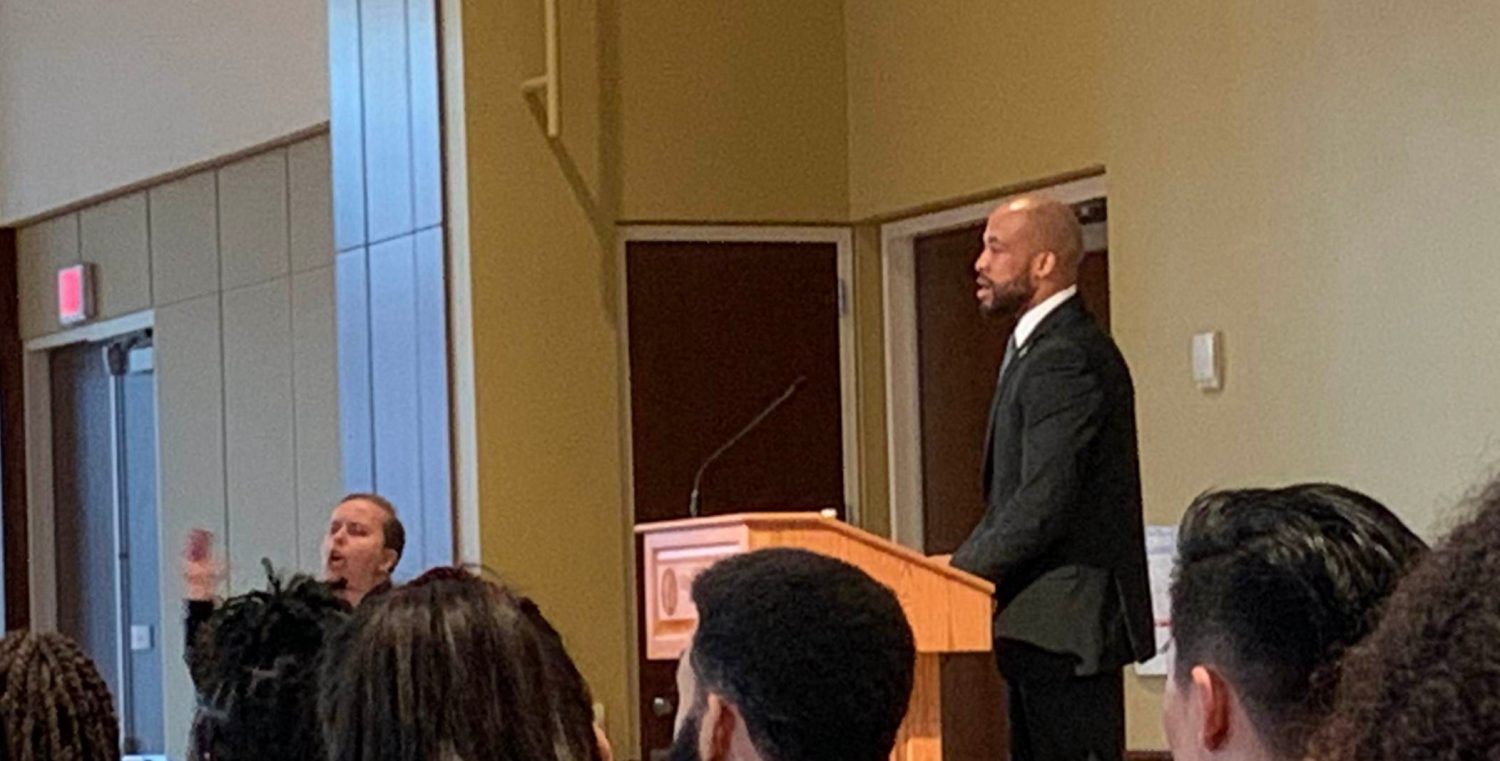
Lieutenant Governor Mandela Barnes addressed University of Wisconsin- Madison faculty, students and community members in a inspiring keynote on Monday afternoon at UW’s annual MLK Day Celebration.
The event, a collaborative effort between the Multicultural Student Center (MSC), Black Cultural Center (BCC) and the Morgridge Center for Public Service featured, a land acknowledgement and welcome by BCC Graduate Student Intern Greg Wilson, the singing of the Black National Anthem, remarks from Associate Dean Dr. Bonnie Candia-Bailey and a Social Justice presentation facilitated by MSC staff Caitlyn LaMonte before the keynote.
Barnes spoke on racial inequality, economic disparities, affordable healthcare, education and sustainability throughout his keynote.
“There’s so much more for us to achieve, so much more for us to address, so much more for us to learn,” he said.
Barnes’ speech referenced racial inequality in the state’s past and present while uplifting some progressive trailblazers in Wisconsin’s history. He referenced former Wisconsin Secretary of State Vel Phillips, the first African American elected to statewide office — Barnes is the second — as well as civil rights leader Ezekiel Gillespie and fugitive slave Joshua Glover. Barnes also nodded to 19-year-old Kalan Haywood, the youngest legislator in the state.
“We have a rich progressive history in the state of Wisconsin and now is the time to get back to those roots,” Barnes said.
He said elections like the most recent one change not just what’s possible but what’s expected. Barnes reassured the crowd he would serve marginalized communities that often get left out of the decision making process. He also said he will lead with the goal of making the state a better place for all citizens.
“Exactly two weeks ago, I stood before the state to take the Oath of Office, and we didn’t look at it as an oath of office but as an oath of dedication to everybody, everybody — all people that call this place home,” Barnes said.
In his keynote, he acknowledged how racial segregation and unjust practices still haunt the state today. He said advancing racial equity and creating opportunity for children is a priority for Governor Tony Evers’ administration. Barnes also said his office will pay attention to how policies affect children of color.
This includes seeking environmental justice. Barnes said environmental issues like water and air contamination historically affect communities of color in disproportionately, especially based on socio-economic class.
“We will lead with the goal of making this state a better state for everyone, so everyone will get a chance to get ahead in life, because a person’s zip code should never determine their destiny,” he said.
Barnes said he is committed to making Wisconsin a sustainable place. For him, this includes redirecting the state’s future toward becoming a leader in renewable energy sources. He said people in charge of maintaining resources should be held accountable.
“We can’t achieve true social justice unless we have environmental justice,” Barnes said.
Barnes said no one in the state deserves to have their health disregarded. He said the Evers administration will adopt policies to improve the health of all residents of the state regardless of race, gender or income. Barnes also spoke about the lack of access to healthcare for women in rural Wisconsin.
“If we want a healthy society, healthy state, we must put the health of our women first,” he said.
Barnes said access to quality and affordable healthcare should be a right. He also wants to address systemic issues in areas like healthcare for economically disadvantaged students. Barnes said the state should save lives and offer people opportunities rather than feeding them into the prison industrial complex.
He said mass incarceration takes an enormous toll on our communities. Before closing Barnes also commented on the Trump administration and government shutdown.
“Uncompensated work is what made America great in the first place. That’s why we were so hesitant about making it great again,” Barnes said.
He urged the audience to press forward in honor of Dr. Martin Luther King Jr. at the end of his speech. Shortly after, Deputy Vice Chancellor for Diversity and Inclusion, Vice Provost and Chief Diversity Officer Patrick Sims closed the event with a charge to action.



